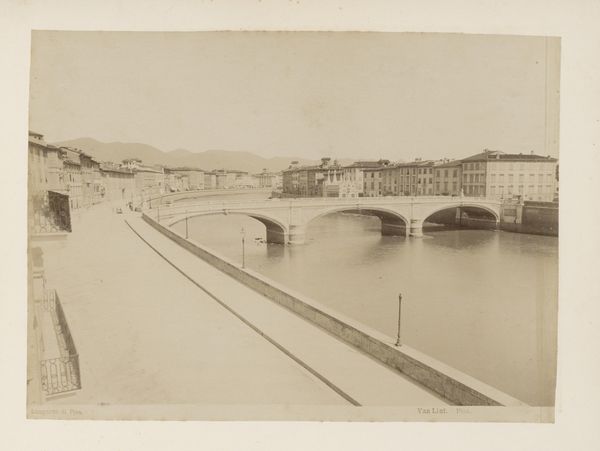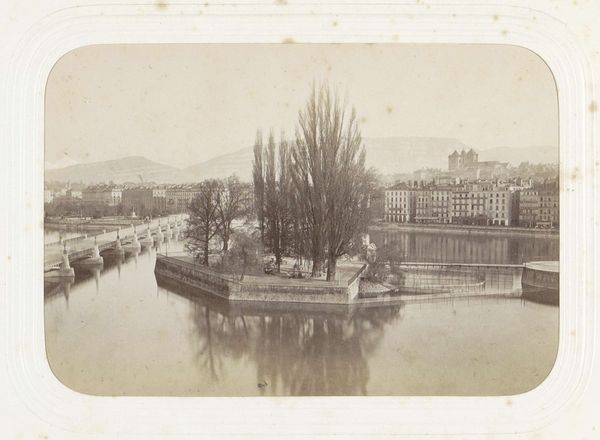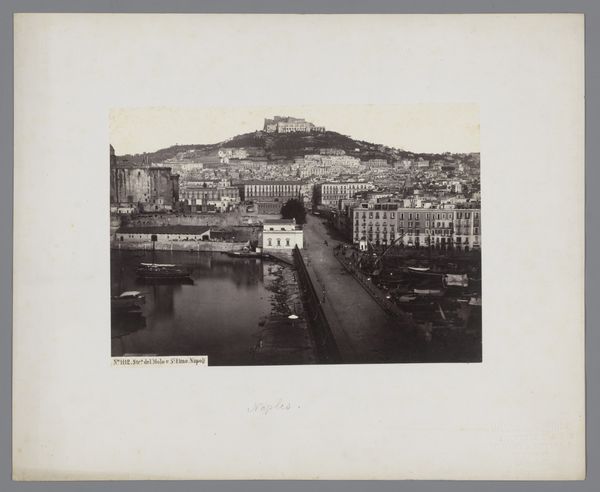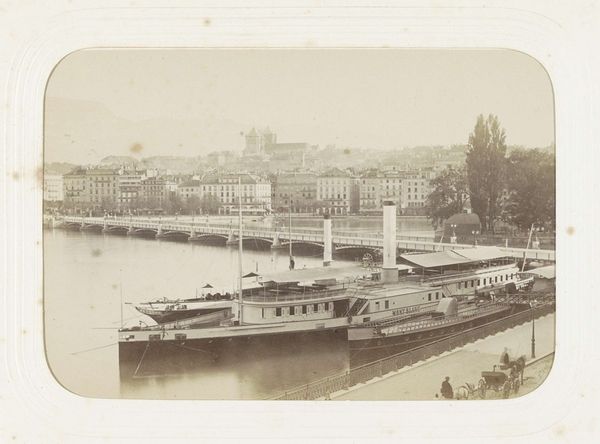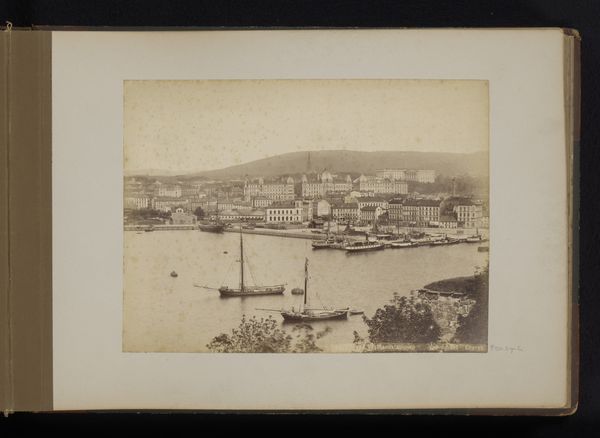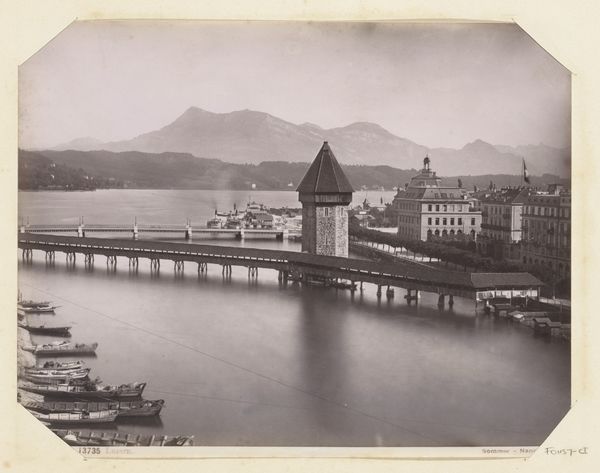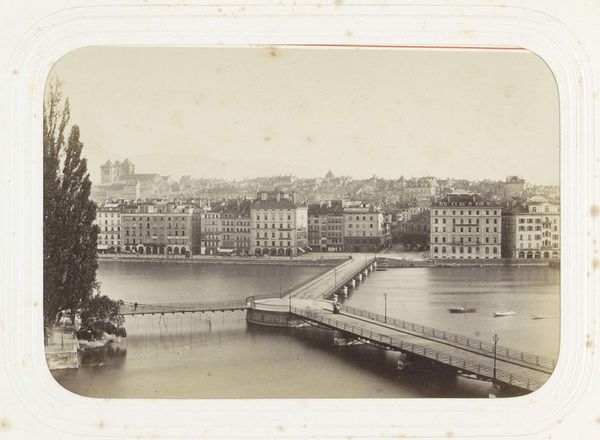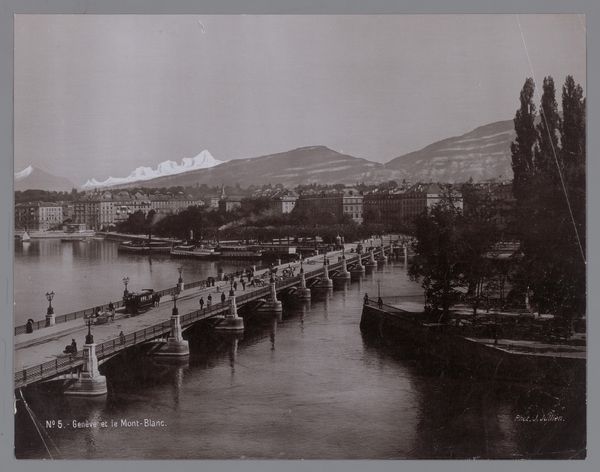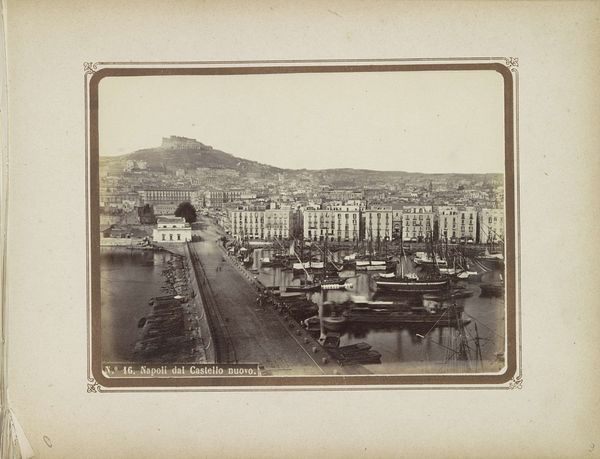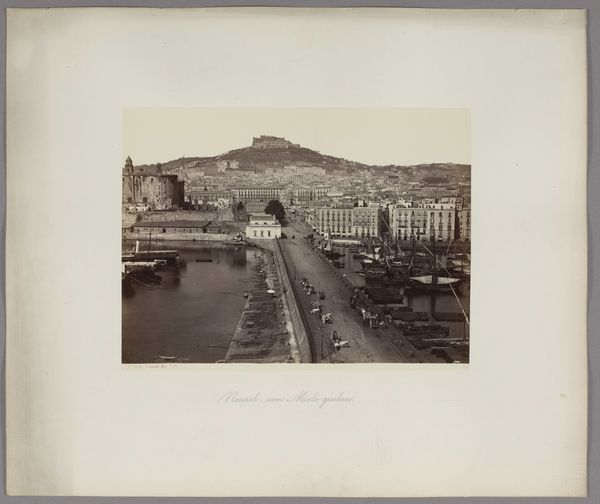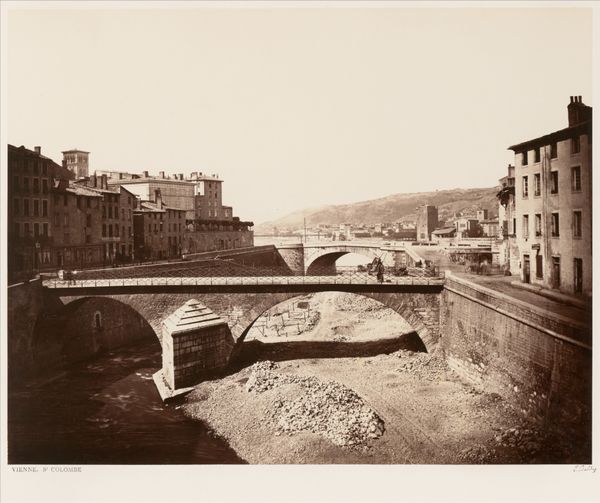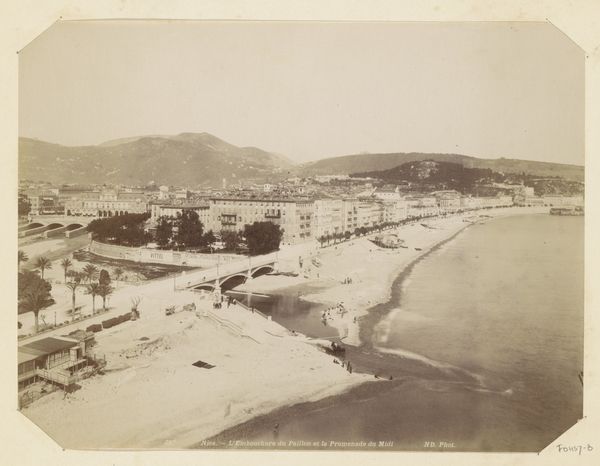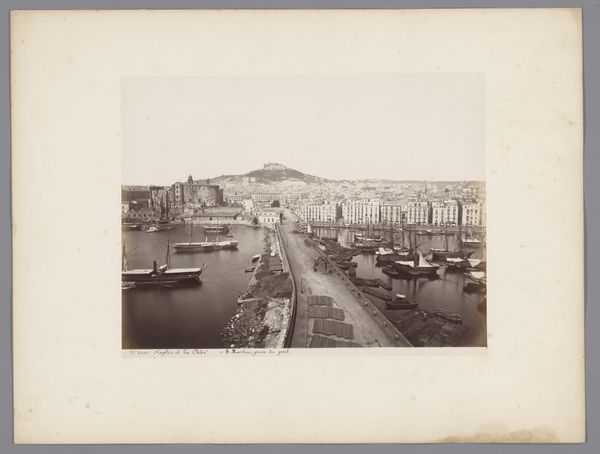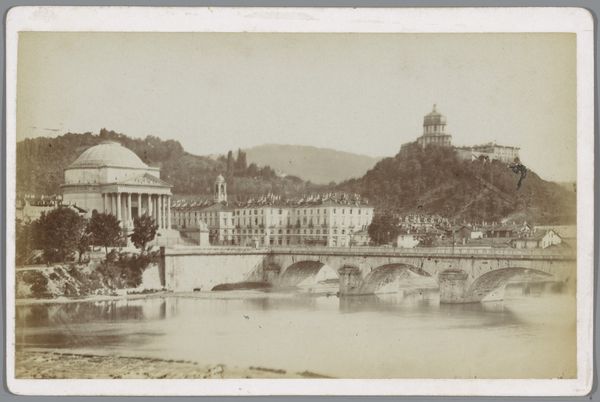
photography, albumen-print
#
pictorialism
#
landscape
#
archive photography
#
photography
#
historical photography
#
cityscape
#
albumen-print
Dimensions: height 108 mm, width 161 mm
Copyright: Rijks Museum: Open Domain
Auguste Garcin captured this albumen print of Geneva and Mont Blanc sometime in the mid-19th century. The process involved coating paper with egg white and silver nitrate, then exposing it to light through a negative. The resulting image, sepia-toned and finely detailed, was then fixed and mounted. The albumen process was a clever innovation, and the resulting images had a crispness and tonal range. But albumen printing also demanded a division of labor. Professional photographers often outsourced the preparation of the paper to specialized manufacturers, highlighting the emerging industrialization of image-making. This division echoes the broader economic shifts of the time, where craft traditions were increasingly being replaced by mechanized production. Looking at this photograph, it’s easy to appreciate the picturesque scene. Yet, understanding the material processes behind it opens up a richer appreciation of the social and economic context in which it was made. The photograph serves as a reminder that even seemingly straightforward images are products of complex technological, economic, and social forces.
Comments
No comments
Be the first to comment and join the conversation on the ultimate creative platform.
